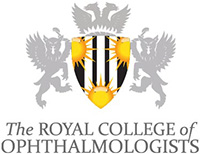| TITLE | COMPLICATIONS OF TREATMENT |
|---|
Code |
PM7 |
Learning Outcome |
- Recognise when a patient has had or is developing a complication or side-effect from treatment and be able to manage this in an appropriate and timely manner.
- Inform the patient, and when appropriate their carer, partner or relatives, in an honest, open and sensitive manner in accordance with local and national clinical governance arrangements.
- Comply with local and national arrangements for critical incident reporting.
- Recognise when complications occur at a higher than expected frequency and respond appropriately.
|
Assessment |
CbD Part 2 FRCOphth
|
Assessor |
|
Target Year of Achievement |
Year 1 (annual review) |
Related Learning Outcomes |
C6 C10 C12 DMCRJ2 HS2
|
Overview |
- It is essential to be aware, honest and open about complications of treatment as per the duty of candour. Any complication must be discussed with the patient and consideration should be given as to how to best provide the ongoing care.
- Be aware of local and national average complications rates for procedures, especially if obtaining consent, and be alert to these rates being exceeded.
- Take every opportunity to examine patients’ pre and post intervention and to follow their progress, assessing for complications.
- Seek training in what constitutes a serious clinical incident and how it is reported.
- Understand the management of cluster of incidents such as infections.
- Participate in clinical audit and governance at local, regional and national levels.
|
Resources |
View Resources |
